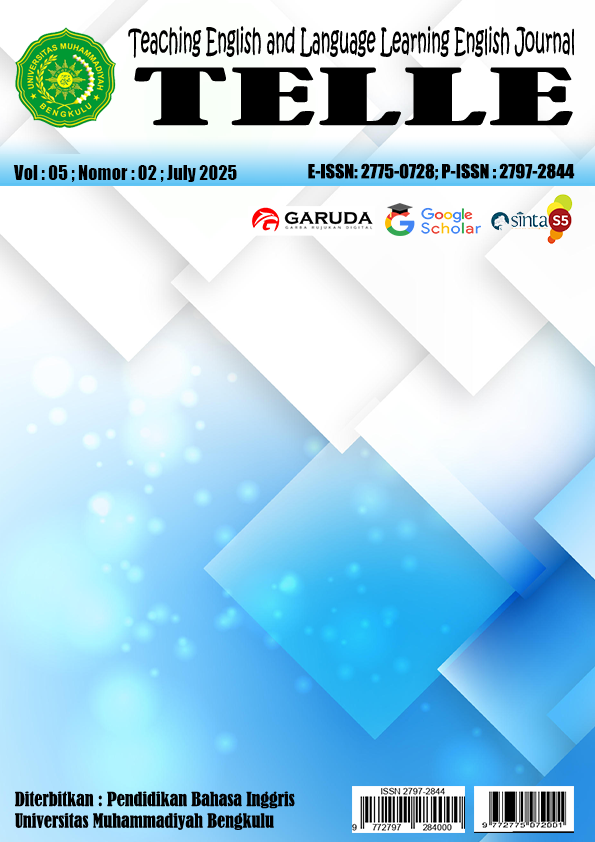STUDENTS' PERCEPTIONS OF THE USE OF DIGITAL LEARNING CARDS IN VOCABULARY LEARNING IN 10th GRADE
DOI:
https://doi.org/10.36085/telle.v5i2.8617Abstract
This study investigates the perceptions of 10th-grade students at SMAS Harapan Mandiri concerning the use of digital flashcards in English vocabulary acquisition. Recognizing vocabulary as a cornerstone of language proficiency, the research employed a qualitative descriptive methodology, collecting data through questionnaires completed by 22 students to explore their cognitive, affective, and psychomotor responses. The findings reveal that the majority of students hold favorable views toward digital flashcards, perceiving them as effective tools that enhance understanding, facilitate retention of vocabulary, and sustain motivation during the learning process. Students particularly valued the interactive and visually appealing design of digital flashcards, noting that features such as colorful layouts and engaging formats contribute to improved concentration and active participation in classroom activities. Nevertheless, the study also highlights that students’ independent use of digital flashcards outside the classroom remains limited. Contributing factors include a continued preference for traditional learning methods—such as handwritten notes and printed materials—as well as practical barriers, notably limited access to digital devices and unreliable internet connectivity at home. Despite these challenges, the integration of digital flashcards aligns well with established theories of multimedia learning and student-centered instruction by promoting active engagement and intrinsic motivation. In conclusion, digital flashcards represent a valuable pedagogical tool for enriching vocabulary instruction, creating a more dynamic and learner-focused environment. It is recommended that educators incorporate digital flashcards systematically into their teaching practices and encourage students to utilize them for autonomous study. Further research is warranted to identify strategies that could enhance students’ motivation and capacity to engage with digital learning tools independently, thereby maximizing their potential benefits for language learning.
Keywords: digital flashcards, vocabulary acquisition, student perception, English education, active learning





